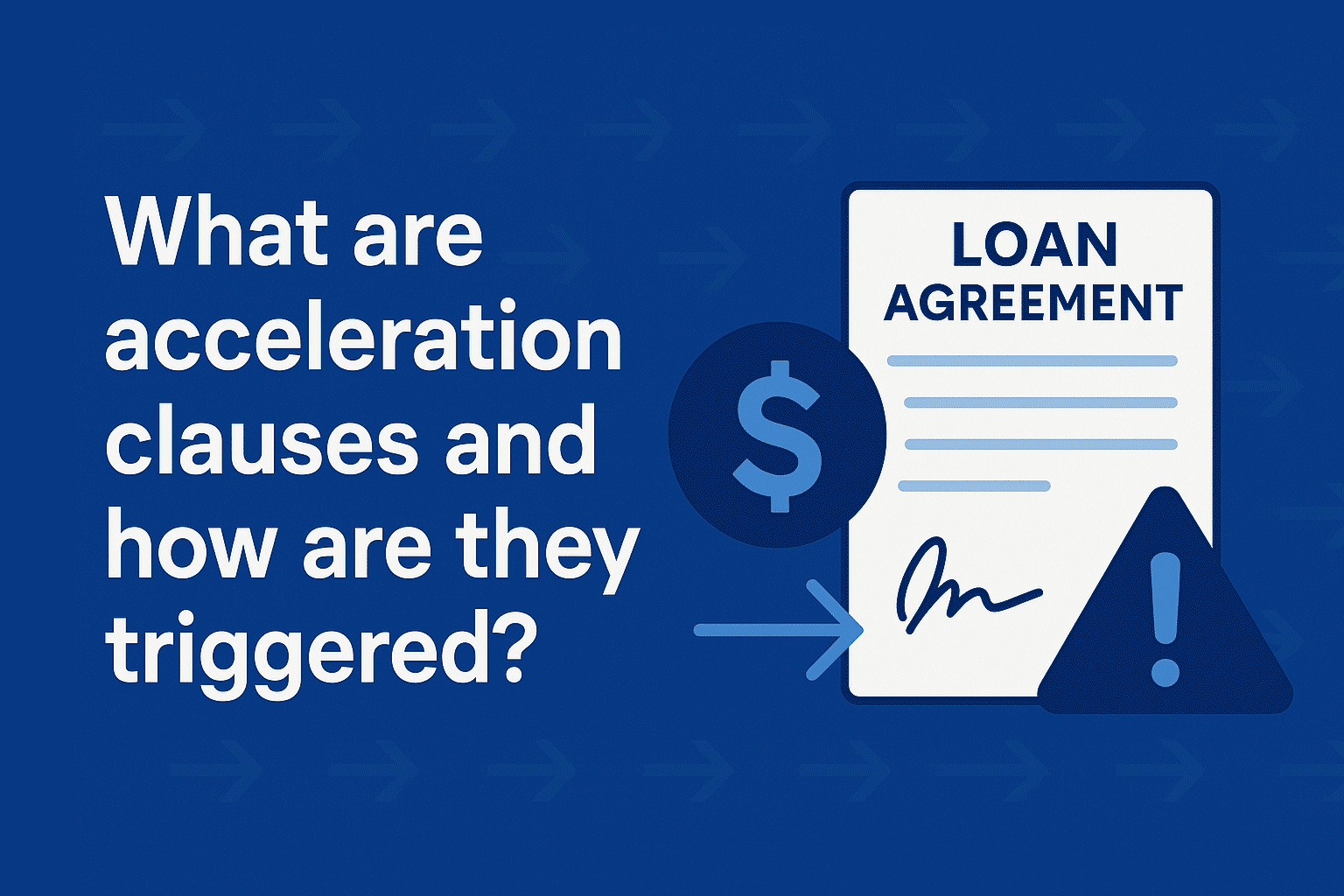release:
What are acceleration clauses and how are they triggered?

An acceleration clause is a common feature in loan and mortgage agreements. It allows a lender to demand full repayment of the outstanding balance if certain conditions are not met. These clauses protect lenders from risk while reminding borrowers that contracts carry enforceable consequences.
See why businesses are rushing to SignTime’s feature-packed contract repository system.
What is an acceleration clause?
An acceleration clause is a contract term that gives a lender the right to demand immediate repayment of the full loan balance. Instead of continuing with monthly installments, the borrower must pay everything owed at once.
Lenders include acceleration clauses to manage risk and ensure compliance with loan terms. For borrowers, understanding the presence of this clause makes it clear what can happen if obligations are not met.
Common triggers of an acceleration clause
Acceleration does not happen automatically. Certain events or breaches in the contract must occur before a lender can invoke the clause. These events, called triggers, are often spelled out in the loan agreement.
- Missing one or more scheduled payments is the most common reason for a lender to demand full repayment.
- Failing to maintain required property insurance can give a lender grounds to trigger acceleration.
- Transferring property without the lender’s consent, known as violating a due-on-sale clause, may activate the clause.
- Filing for bankruptcy alerts lenders to financial distress and can cause acceleration.
- Breaching other loan conditions, such as not paying property taxes or committing fraud, can also lead to full repayment being demanded.
What happens when an acceleration clause is triggered?
When a lender decides to use the acceleration clause, the first step is usually an official notice called an acceleration letter. This letter informs the borrower that the entire balance is now due and explains the reason for the demand.
Once the clause is triggered, the borrower no longer has the option to make small monthly payments. The lender expects immediate repayment of the full amount, which can be difficult to manage. If the borrower cannot pay, the lender may begin foreclosure proceedings, offer a chance to negotiate, or suggest refinancing as a last resort.
How borrowers can avoid acceleration
Borrowers are not powerless when it comes to acceleration. By staying proactive, they can reduce the chance of facing an unexpected demand for full repayment.
- Borrowers can avoid acceleration by keeping loan payments current.
- Open communication with lenders about financial hardship helps prevent escalation.
- Staying informed about all contract terms reduces the chance of accidental breaches.
- Seeking professional advice early can provide options before acceleration is triggered.
Examples of acceleration clauses in practice
Acceleration clauses appear in a variety of contracts beyond standard mortgages. In real estate transactions, they protect lenders if a buyer misses payments or sells a property without permission.
Business loans and commercial contracts also often include acceleration clauses. These clauses ensure that companies meet their obligations and provide lenders a way to recover funds quickly if the borrower defaults.
The exact wording and enforcement can vary depending on the contract type, but the underlying purpose remains the same: manage risk and maintain compliance.
Why do acceleration clauses matter?
Acceleration clauses are important because they clearly define the consequences of missed or broken obligations. Borrowers understand the risks involved, which encourages timely payments and careful adherence to contract terms.
For lenders, acceleration clauses provide a reliable mechanism to enforce contracts and reduce financial risk. Clear and transparent clauses also help prevent disputes and confusion between parties, making the lending process smoother for everyone involved.
SignTime helps real estate contracts close smoothly
SignTime’s e-signature and contract management platform makes it easy for realtors and lenders to finalize agreements quickly. Faster signing reduces the chance that deals stall or fall through before contract terms, like acceleration clauses, even become a concern.
By streamlining the signing process and keeping contracts organized, SignTime helps transactions move forward efficiently. This means fewer delays, stronger deals, and greater confidence for both buyers and sellers.
Download our brochure to see whether SignTime might be a fit for your organization.
